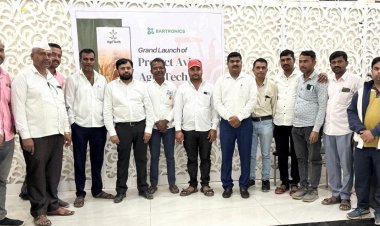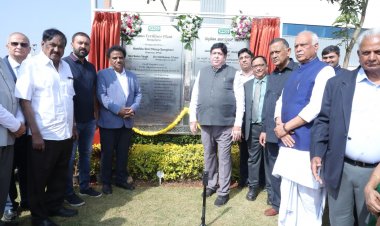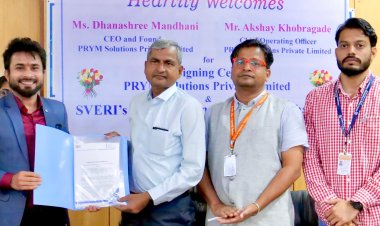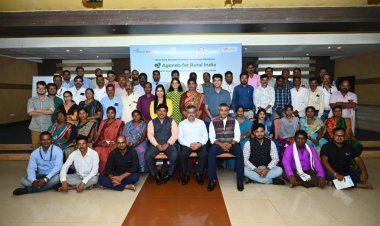ACFI urges Govt to look into agrochem industry’s concern on Pesticide Management Bill
The Agro Chem Federation of India (ACFI), the apex body of the agrochem industry, organized a brainstorming technical discussion on “Plant Protection Chemicals: The basic requirement for Sustainable Agriculture”. President NK Aggarwal spoke about the shortcomings of the Pesticide Management Bill 2020 and urged the Government to bring modifications.
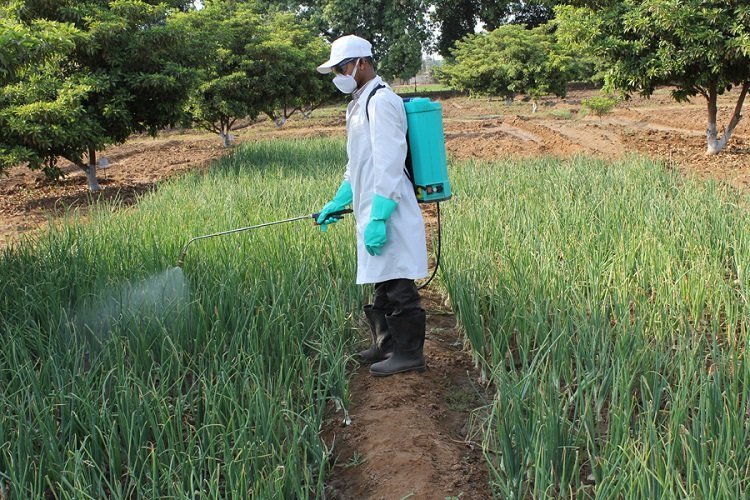
New Delhi
On the occasion of its 4th Annual General Meeting (AGM) on September 24, the Agro Chem Federation of India (ACFI), the apex body of the agrochem industry, organized a brainstorming technical discussion on the topic “Plant Protection Chemicals: The basic requirement for Sustainable Agriculture”.
According to an ACFI press release, the discussion talked about the importance of educating the farmers about the judicious and justified use of plant protection chemicals (pesticides), and how that the agrochemical industry needs to collectively work on perception management.
In his keynote address, Dr SK Malhotra, Agriculture Commissioner & Chairman, Registration Committee, Ministry of Agriculture and Farmers Welfare, said the Government was working towards Central Insecticides Board & Registration Committee (CIBRC) reforms and ease of doing registration. He also expressed concern about the unorganized pesticide industry and hoped the industry body would work towards making it an organized one.
Dr SC Dubey, ADG, ICAR, Ministry of Agriculture and Farmers Welfare, emphasized indigenous new molecules, setting up of R&D and data protection to encourage new technologies.
Outgoing President of ACFI NK Aggarwal welcomed all the attendees, expressing his appreciation towards all the members for their overwhelming support to him and expressed pleasure that ACFI had gradually established itself as a true platform for policy interventions and a vocal flag-waver for the entire Indian agrochemical industry in a transparent and a democratic way.
He also urged the Government to extend support for the uncomplicated registration process and bring modification in the Pesticide Management Bill (PMB). He also expressed the need for skill development and enhancing awareness of the farmers, dealers and distributors.
Aggarwal also reiterated the shortcomings of PMB, which had been introduced in Rajya Sabha by the Minister of Agriculture and Farmers Welfare, Narendra Singh Tomar, on March 23, 2020, and later referred to the Standing Committee on June 3, 2021.
The 2020 Bill does not specify a time limit for registration. To ensure speedy registration, transparency and efficiency in the functioning of the Registration Committee, the registration must be granted within one year of application.
PMB 2020 does not talk about the serious problems of the grants of thousands of ghost registrations and hundreds of licences, increasing complaints against pesticides quality by farmers, and poor-quality control enforcement.
It doesn’t address the issue of bringing newer and better molecules to India.
Regulatory data protection is one of the biggest concerns of the agrochemical industry. But this has not been included in PMB 2020. Registration of a new pesticide requires the applicant to submit safety and efficacy data generated over a number of years. Data protection will ensure that the data generated would not be relied upon to grant registration for the same pesticide to any other person for a specified time.
PMB 2020 suggests that higher punishments alone will ensure quality products. Whereas it should ensure that only responsible persons with the ability to adequately invest in both safety and efficacy are allowed to obtain registrations and get manufacturing licences so that the farmers will get only the genuine products.
No qualifications are required either in the existing Act or in the proposed bill to obtain a registration. This makes obtaining a manufacturing license from the State very simple. This is evident by the fact that there are more than 4000 firms that have been granted over 150,000 registrations.
PMB 2020 does not prescribe the minimum standards required for the Central Insecticides Laboratory and the State Pesticides Testing Laboratories, which presently is a huge deterrent to quality enforcement.



 Join the RuralVoice whatsapp group
Join the RuralVoice whatsapp group




















